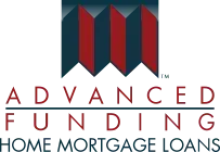When you sit down to sign the papers to buy a home, you will most likely be required to pay closing costs. Mortgage closing costs are the fees associated with the home buying and lending process.
What is included in my closing costs?
The types of closing cost fees can vary based on region, property type, and loan type. There are a few basics that most everyone has to pay. These include things like an appraisal fee, for sending an appraiser out to determine the fair market value of the property. Closing or escrow fees are also common, which compensate the title company, escrow firm, or attorney handling the mortgage closing. The fees for your pest inspection and home inspection may also be part of your closing costs. The home inspector gives you a detailed account of the property’s condition before you buy. Closing costs also often include a prepaid year of homeowners’ insurance. Some lenders will charge an origination fee as part of closing costs, Advanced Funding does not charge an origination fee. This is the fee for their labor to create the mortgage. You will also pay for the title company title search to make sure that any liens on the property are cleared properly. The lender’s and the owner’s policy title insurance will show in the closing costs as well. This first protects the lender against any title issues and the second protects you, the buyer, against any titles claims. Also in the closing costs will be a recording fee, paid to the county or city for recording the sale and there will be transfer taxes, for transferring the property into your name. And of course, there will be an underwriting fee, the lender’s cost to do research and confirm whether or not to loan you the money. There are plenty of other things that could be involved in closing costs depending on your situation, including things like discount points, private mortgage insurance premiums, prepaid interest, credit check fees, and more.
How much will I pay?
Closing costs can range from 1.5% to 5% of the home purchase price. On a $150,000 house, this would be between $3,000 and $7,500. A Utah mortgage would be closer to the $3,000 figure. Within three business days, after you have turned in your mortgage application, your Utah mortgage broker should provide you with a Loan Estimate. This will include a list of expected closing costs and their total amount. The exact amount can change during the loan process, as this is only an estimate. Then, at least three business days before closing, your mortgage lender will give you a Closing Disclosure Statement. The final closing cost total should be stated. You can then compare the end total to the original estimate and ask your broker about any dramatic changes.
Do I have to pay closing costs?
In some cases it is possible to ask the seller to pay for some or all the closing costs. When the housing market is hot, however, this can be difficult. When refinancing your Utah mortgage loan it is most common to include your closing costs into your loan. You also have the option to get what is referred to as a low- or no-closing cost loan. The downside to this arrangement is that in order to compensate for that lack of upfront cash, you will be charged a higher interest rate on your mortgage. In both cases, you can end up paying more over the long run.
Understanding the nature of closing costs and having a rough idea of their final amount can help you be prepared for a smooth mortgage closing.





